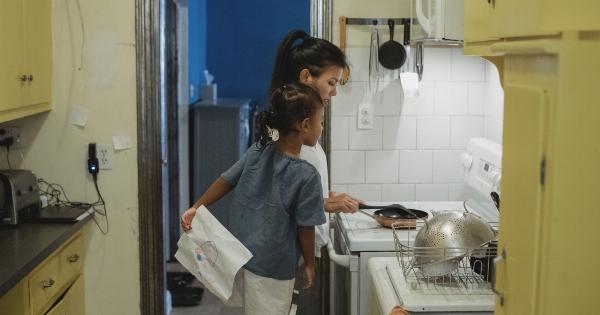Getting children to eat dinner can be a frustrating and challenging task for many parents. Children have their own preferences and can often be very selective about what they eat.
However, eating a healthy and balanced diet is essential for their growth and development. In this article, we will provide some tips on how to get your child to eat dinner.
1. Offer a Variety of Foods
Children can easily get bored with eating the same foods repeatedly. Therefore, it is essential to offer a variety of foods to keep them interested. Introduce new fruits, vegetables, and proteins into their meals.
You can use recipes from cookbooks, or online to provide different ways of cooking and presenting foods.
2. Make Meal Times Fun
Children are more likely to eat when they feel relaxed and happy. Therefore, you can create a fun environment for them during meal times. You can make the meal table more attractive by using colorful plates and utensils.
Playing soft music or engaging them in conversation can also create a pleasant atmosphere.
3. Avoid Complaining or Forcing
Avoid criticizing or forcing children to eat specific foods. Instead, allow them to choose the foods they want from the options you have provided. If they refuse a food, do not make a big deal out of it.
Eventually, they will learn to try new foods on their own.
4. Involve Them in the Cooking Process
Enlist your children’s help in the kitchen. Involve them in meal planning and preparation. They will more likely eat a meal they have helped to prepare. Allow them to chop vegetables, mix ingredients, and set the table.
This helps them understand what goes into making a meal and appreciate the effort that goes into cooking it.
5. Follow a Consistent Meal Schedule
Children follow routines very closely. Setting a consistent meal schedule can help them develop healthy eating habits. Ensure that they eat three meals a day around the same time daily. As they get older, you can introduce snacks in between meals.
Having a predictable meal schedule also helps to control the amount of food they eat.
6. Be Creative with Food Presentation
Children are known for their vivid imaginations. You can create imaginative presentations with their meals to make it more appealing.
You can make fun shapes with fruits and vegetables or cut their food into bite-sized pieces, presenting them artistically on the plate. This makes the meal look more like a fun activity than just something they have to eat.
7. Be a Role Model
Children learn from what they see. If you eat healthy foods regularly, they will learn to eat healthily. Therefore, being a role model in healthy eating habits can influence their food choices.
Eat with your children at the table, rather than eating in front of the TV. This makes mealtime and eating as a family, a bonding activity.
8. Avoid Giving Rewards
Avoid using food as a reward for good behavior. Using food as a reward can make them associate eating with good behavior only. This can lead to unhealthy relationships with food.
Instead, you can reward your child’s good conduct with non-food items, like stickers or toys.
9. Make Food Easy to Eat
Make sure the food is easy to eat for children. Cut food into small pieces so that they can chew and swallow without any difficulty. Avoid adding too much spice or seasoning to their food.
Use seasonings in moderation to prevent overwhelming their taste buds.
10. Encourage Healthy Eating
Encourage healthy eating habits in your children. Rather than restricting their food choices, explain to them the importance of eating healthy to help them understand their choices better. Allow them to help plan their meals.
Provide fruits, vegetables, and whole grains with every meal. Encouraging healthy eating habits in your children with help them make better food choices for the future.
Conclusion
Getting a child to eat dinner can be challenging, but it is not impossible. With a bit of patience and creativity, you can gradually introduce new foods to them and make meal times more enjoyable.
By encouraging healthy eating habits, you can help your children develop a positive relationship with food.



























